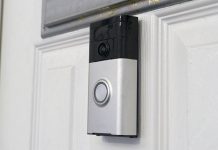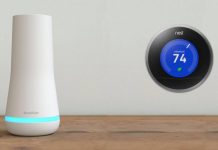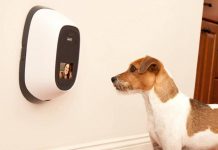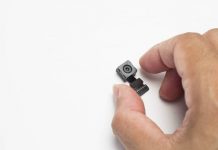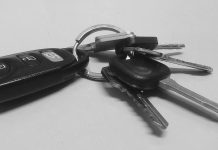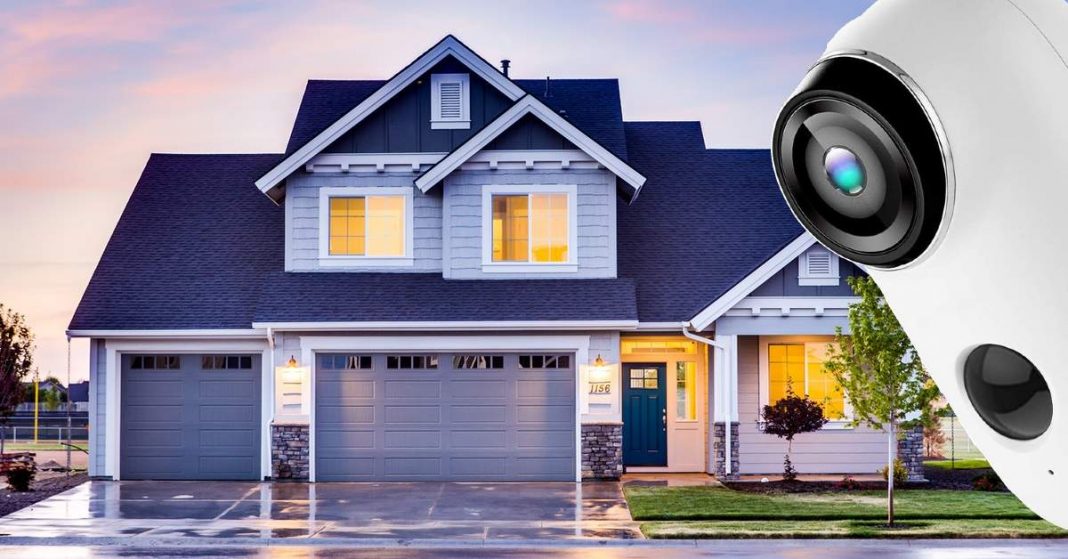UPDATED December 11, 2021 This piece has been updated to reflect the emergence of new technology


Christian Mathews Security Writer
Burglaries and intrusions are a home owner’s worst nightmare. If you’ve ever had an intruder break into your home, you are probably considering getting a home alarm system with cameras. Even if something that unfortunately has not happened to you, it’s better to be cautious and protect your home in advance. After all, you wouldn’t want to experience a home intrusion or burglary before you take the call to action.
But if you search online for home security systems, you will be greeted by a variety of products. In addition, they include many different components like sensors, alarms, control panels, thermostats, and cameras.
For a first-time buyer, it can be extremely confusing to pick a suitable home alarm system with cameras. Then you also need to worry about installing the system and how to use it.
Your safety is our concern and we want you to have a smooth experience when setting up alarm systems for your home security.
So, we have put up this simple but comprehensive guide detailing the ten most essential things you need to know about home alarm systems with cameras. It will give you a clear idea of what factors you must consider in advance when buying and setting up a home security system.
110 Things You Should Know About Home Alarm Systems with Cameras
Cost
Your budget and the price of the security system is going to be one of the deciding factors. If you are wondering how much for an alarm system for home, basic security systems that have just a few kits such as two or three sensors, a few alarms, and a control panel can be found for less than $100.
But these are suitable for small homes, while bigger residences will need advanced systems with more components and features. Those can cost anywhere between $200 and $500.
Response Time
The alarms in most security systems have quick or even instant response times. But it’s not just the alarms that you need to think about. Home security systems also have a distress signal feature to notify law enforcement and medical services in case of an emergency.
So you will need to enquire about the response time of such notification with the manufacturer or dealer in advance.
Installation Process and Costs
Regarding the installation process, different security systems provide DIY as well as professional installations. The best self install home security systems are simple to set up and operate, and you just need to follow the manual correctly. But advanced security systems require professional installation, which might cost you some extra money.
Some systems include the charges for professional installation in the product’s price tag itself, while others require you to pay for the installation separately.
Features and Components of Home Alarm System with Cameras
This is the part where you need to focus the most. The main components of a complete home security system are – door/window sensors, motion sensors, a keypad, and control panel, and obviously, alarms and cameras. These are the parts that you will most commonly find in any security system package.
Additional parts such as thermostats and carbon monoxide detectors are included in advanced systems. The good thing is you can always start with a basic starter package and add extra components from the same manufacturer later on if needed.
Customer Service
Even with the best alarm systems, you might occasionally face some issues such as defective products or technical malfunctions. In such cases, you will be relying on the customer service provided by the dealer or manufacturer to fix the issues.
If you want a hassle-free experience, research the manufacturers to know about the quality of their customer service.
Professional Monitoring
When you are setting up a home security system, you also need to decide if you want professional monitoring or not. If your home is unattended quite often or if you have to leave children and minors alone in the home, it’s best to pay for professional monitoring.
But if an adult family member is present in the house most of the time, it may not be necessary. While professional monitoring will cost you extra money, you will surely be relieved to know that your home is under supervision even when you are away.
Style and Design of the System
Aesthetics are the least of your concern when your focus is on safety. Having said that, it will certainly be better to install a system that blends seamlessly with your home’s interior and exterior surroundings.
So, it’s best to go for a security system with small, compact, and mostly wireless components. It’s even better if individual parts such as sensors and detectors are portable so you can easily switch their position within the home if required.
Connectivity and Mobile Compatibility
Connectivity is an important factor in home security systems. Most systems have their mobile app and will most likely be connected to your home Wi-Fi. They need to be connected to your phone and Wi-Fi at all times, for two reasons:
· So that you can operate them wirelessly without any disturbance.
· For sending distress signals and for professional monitoring by a third party if you have opted for it.
You need to research the connectivity of a security system beforehand, be it by inquiring about it with the dealer or by reading reviews by other people who have bought and used the system.
Ease of Use
What good is a security system if you can’t operate it conveniently? You will need to perform many functions, such as:
· Arming/disarming the alarms
· Turning the sensors on and off, for example keeping them off when people are moving in the house during the day and turning them on at night when everyone is asleep
· Changing the passwords and codes often, which is always a good practice for security
A system that allows you to control such functions easily and quickly in a few steps is highly preferable.
2Compatibility with Voice Assistants
Many security systems can also integrate with voice assistants such as Alexa and Google Assistant. It adds a lot of conveniences as you can perform functions such as disarming alarms and sensors or sending emergency calls with just your voice.
It’s an optional feature – if you don’t have a voice assistant device and don’t want to buy one; you can go for a security system that doesn’t support voice control compatibility. But if you’re already using voice assistants, then having a system that integrates with it will give you a lot of flexibility.
3Final Thoughts
Knowing which security system is the best for your home is a long-term investment. You will ideally want an alarm system that will function perfectly for many years, with little to no issues. So, we recommend that you spend as much time as it takes to do your research and check the boxes for each of the points we have mentioned above. A lot of it depends on your preference and needs, and with this guide, you can make a well-informed decision on which home alarm system with cameras is best suited for your humble abode.



